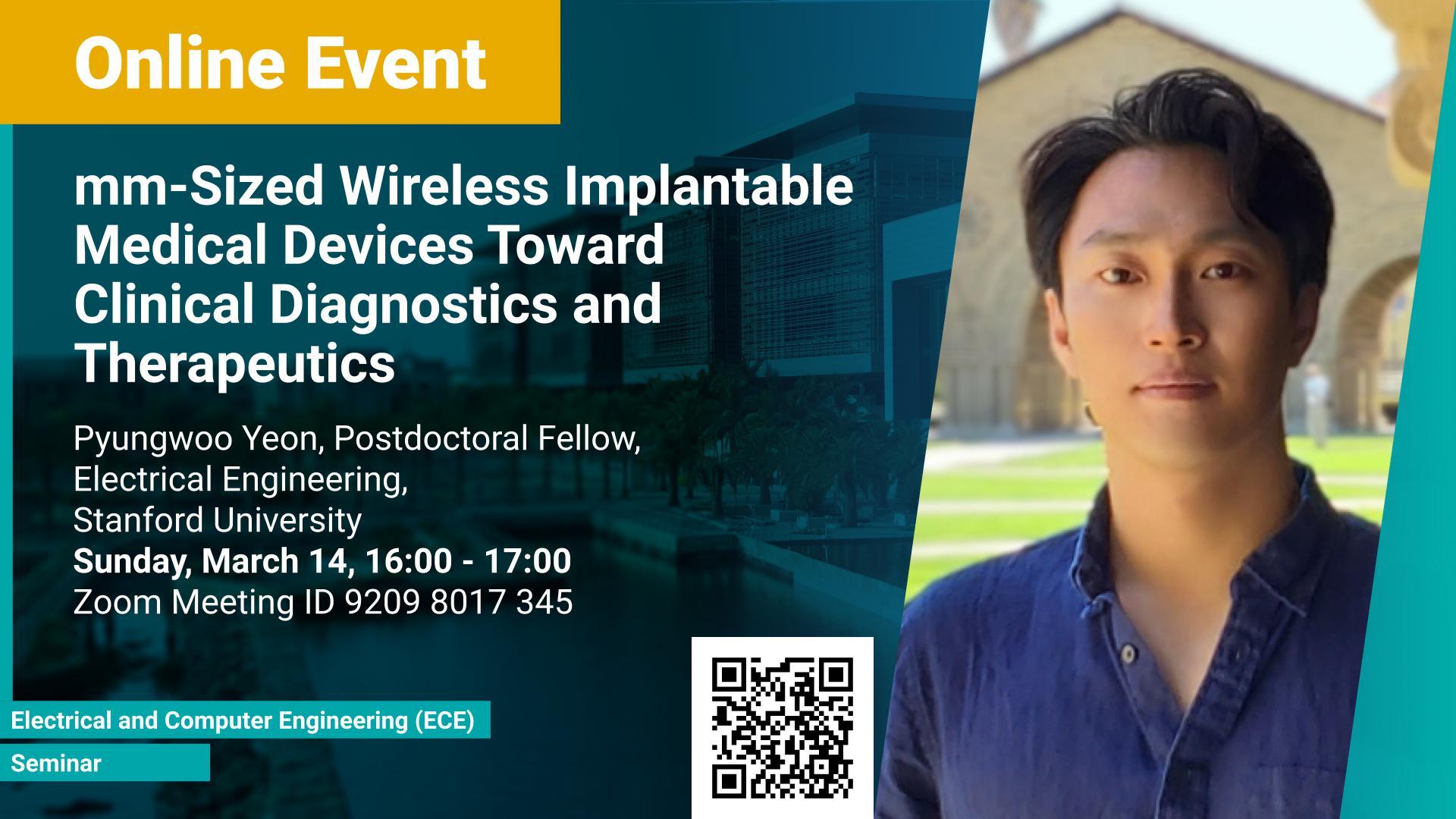Abstract
Implantable and wearable technologies are rapidly emerging and showing great promise in various medical therapeutics and diagnostics. These advances from health monitoring to therapeutic applications reorganize many aspects of daily life. Since the invention of the first implantable cardiac pacemaker for patients with arrhythmia in 1958, many implantable medical devices (IMDs) such as implantable cardioverter defibrillators (ICDs) and implantable deep brain stimulators (iDBSs) have been developed and have treated millions of patients. These IMDs eventually need wireless powering and communication for 1) eliminating transcutaneous power/data interconnects that elevate the risk of infection and 2) removing bulky batteries to avoid the risk of repeated surgical intervention. They also need small form factors and soft materials to mitigate tissue fibrosis due to foreign body responses. In this talk, I will introduce a new wireless neural interfacing tool within a cubic millimeter that can potentially record large scale neuronal ensembles over large brain area. The discussion will be focused on its building pieces across a wide range of science and engineering disciplines toward translating those into a complete clinically viable IMD. Also, I will present my recent research on RF-to-ultrasound power relay for powering deep mm-scale implants across air/tissue or tissue/skull media, and an all-soft and wireless pressure sensor tags that aim to address the issues of surgical complexity, tethering effect, and foreign body response. Finally, I will conclude the talk by presenting my future research plans toward clinically viable wireless medical diagnostics and therapeutics.
Brief Biography
Pyungwoo Yeon is a post-doctoral fellow in electrical engineering at Stanford University. He received the B.S. degree from Seoul National University, Seoul, Korea, in 2010, the M.S. degree from University of Tokyo, Tokyo, Japan, in 2012, and Ph. D. degree from Georgia Institute of Technology, Atlanta, GA, USA, in 2019, respectively, all in electrical and computer engineering. He previously held industrial positions at Apple Inc., Samsung Electronics, and LG Electronics where he worked on a display module for wearable devices, a state-of-art wireless charger IC, and digital living network alliance (DLNA) certified media servers. His research interests include novel system architectures and circuit topologies for wireless implantable, wearable, and IoT medical therapeutics/diagnostics. He is the co-recipient of the IEEE Wireless Power Transfer Conference (WPTC) Best Paper Award in 2013, the Silver Award in the Samsung Electro-Mechanics Best Paper in 2016, the 3rd IEEE Biomedical Circuits and Systems Conference (BioCAS) Best Paper Award in 2017, and Stanford RISE COIVD-19 Crisis Response Trainee Seed Grant Program Award in 2020.
